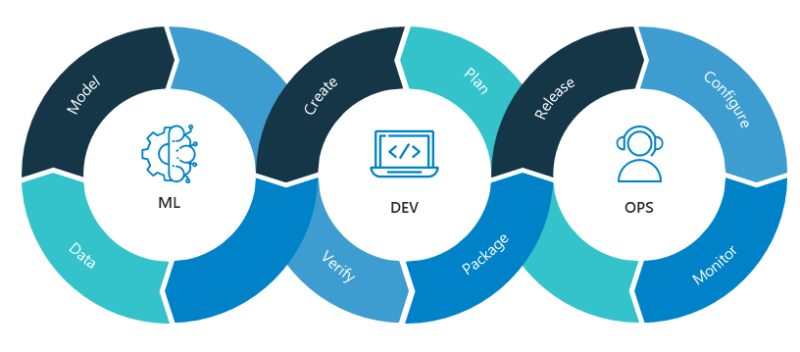4 min to read
What is DevOps?
Importance of the devops approach

Table of contents
Understanding DevOps: Bridging the Gap Between Development and Operations
In the world of software development and IT operations, a revolutionary approach has emerged that’s transforming the way organizations build, deploy, and manage software systems. This approach is known as DevOps. In this article, we’ll explore what DevOps is, its key principles, benefits, and why it has become a crucial practice in the tech industry.
What is DevOps?
DevOps is a portmanteau of “Development” and “Operations,” signifying the collaboration and communication between software development and IT operations teams. It’s a cultural and technical movement that seeks to break down traditional silos between these two critical functions.
Key DevOps Principles
DevOps is built on several core principles:
1. Collaboration
DevOps promotes a culture of collaboration. Developers and operations teams work closely together throughout the entire software development lifecycle (SDLC). This collaboration ensures that development efforts align with operational requirements and constraints.
2. Automation
Automation is a fundamental aspect of DevOps. It involves automating repetitive and manual processes, such as code deployment, testing, and infrastructure provisioning. Automation reduces human errors, accelerates workflows, and enhances consistency.
3. Continuous Integration (CI)
In CI, developers frequently merge their code changes into a shared repository, triggering automated builds and tests. This practice ensures that new code additions are continuously integrated and validated, reducing integration challenges down the line.
4. Continuous Deployment (CD)
CD extends CI by automatically deploying code changes that have passed testing to production environments. This enables rapid and reliable software releases.
5. Monitoring and Feedback
Continuous monitoring of applications and infrastructure provides real-time feedback. This helps detect issues promptly and allows for immediate remediation, ensuring optimal system performance and reliability.
Benefits of DevOps
Implementing DevOps practices offers several advantages:
1. Faster Time to Market
DevOps accelerates the software development process, enabling organizations to release new features and updates more rapidly. This agility is crucial in today’s competitive landscape.
2. Enhanced Quality
Automation and continuous testing lead to higher-quality software. Bugs and defects are detected and resolved early in the development cycle, reducing costly post-release issues.
3. Improved Collaboration
DevOps fosters a collaborative environment where teams work together seamlessly. Improved communication and shared goals result in more efficient workflows.
4. Scalability
Infrastructure as Code (IaC) allows organizations to treat infrastructure provisioning as code, making it easier to scale resources up or down as needed to meet changing demands.
5. Stability
Continuous monitoring and feedback loops help identify and address issues promptly, leading to a more stable and reliable software environment.
DevOps Tools
Several tools support DevOps practices, including:
- Jenkins: A popular open-source automation server for CI/CD pipelines.
- Docker: A containerization platform for packaging and deploying applications and their dependencies.
- Kubernetes: An orchestration platform for containerized applications, providing scalability and resilience.
- Ansible: An automation tool for configuration management and application deployment.
- Prometheus: An open-source monitoring and alerting toolkit.
- Git: The widely-used version control system for tracking code changes.
Best Practices
To successfully implement DevOps, consider the following best practices:
-
Start Small: Begin with a small, well-defined project or team to pilot DevOps practices.
-
Automation First: Prioritize automation to reduce manual intervention and errors.
-
Cultural Shift: Cultivate a culture of collaboration, trust, and continuous improvement across all teams involved.
-
Feedback Loop: Implement mechanisms for continuous feedback from users, stakeholders, and team members.
-
Security Integration: Embed security practices into the DevOps pipeline to address vulnerabilities proactively.
Conclusion
DevOps represents a paradigm shift in how organizations develop and deliver software. By emphasizing collaboration, automation, and continuous improvement, DevOps enables businesses to achieve faster releases, higher-quality software, and more stable systems. It’s not just a set of tools; it’s a holistic approach to software development and IT operations that has become essential for thriving in today’s fast-paced digital world. Embrace DevOps, and your organization will be better equipped to meet the challenges of modern software development and deployment.

Comments